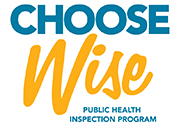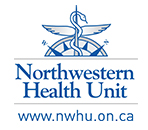Glossary
Boil Water Order
A boil water order is issued by the Medical Officer of Health when there is the presence or possible presence of bacteria or other microorganisms in the water. The operator is required to boil the water before use or switch to a commercially prepared water supply until the water is deemed safe. This order will be lifted (rescinded) once satisfactory water sample results are achieved. BWOs are usually issued to small drinking water systems, but in high risk cases are also issued to municipal water systems.
Closed
A premises has failed their health inspection. The safety of the premises cannot be guaranteed, and must be closed until safety can be assured. This may require the premises to be vacated, closed in whole or in part, or other similar measures.
Complaint Inspection
This type of inspection occurs when the health unit has been notified of a public complaint regarding a premises.
Conviction
A charge is considered a conviction when the person or business charged is found guilty or admits to being guilty of an offence in a court of law. An individual identifies their guilt by paying the amount indicated on the ticket or going before a Justice.
Critical Infraction
Has the potential to pose an immediate public health risk and/or lead to a food-borne illness (e.g., improper hot/cold holding temperatures, etc.) or IPAC lapse.
Drinking Water Order
A drinking water order is issued by the Medical Officer of Health when there is the presence or possible presence of a potentially harmful chemical or mineral in the water. An alternative source of water (i.e. water bottles) must be used as boiling the water may increase the concentration of harmful contaminants. This order will be lifted (rescinded) once satisfactory water sample results are achieved.
Food Premises
Any place where meals or meal portions are prepared for immediate consumption or sold or served in a form that will permit immediate consumption on the premises or elsewhere.
Health Hazard
A condition of a premises, a substance, thing, plant or animal other than man, or a solid, liquid, gas or combination of any of them, that has or that is likely to have an adverse effect on the health of any person.
Health Hazard Closure Infraction
Has high potential to pose an immediate public health risk and/or lead to a food-borne illness (e.g., inadequate water supply, insect/rodent infestation, sewage back-up, ect).
Health Protection and Promotion Act
The provincial statute that gives boards of health their legal mandate and gives powers of enforcement to public health inspectors.
Non-Compliance
Requirements of provincial acts, regulations, or best practices are unmet, resulting in infractions.
Non-Critical Infraction
Does not pose an immediate health risk in and by itself, is not likely to lead to a food-borne illness, and/or does not directly relate to food handling practices (e.g., structural deficiency of floors or walls, etc.)
On-Site Disclosure
Signs reflecting the results of health inspections will be visible to the public at the point-of-sale.
Ontario Public Health Standards (OPHS)
Guidelines published by the Ministry of Health and Long-Term Care for the provision of mandatory programs and services.
Order In Place
A closure order has been issued and has not yet been rescinded.
Owner/Operator
A person who has responsibility for and/or control over activities in an establishment to ensure compliance with applicable legislation and directives.
Part 1 Ticket
A document issued by public health inspectors under the authority of S. 13 of the Health Protection and Promotion Act if infractions (violations) of the provincial regulation and/or guidelines are observed by a public health inspector. The ticket will list the offence(s) and associated fines. Also known as a charge, certificate of offence, or offence notice.
Part 3 Summons
A summons can be given instead of a ticket. A summons is a legal document that requires the person charged with an infraction to appear in an Ontario Court of Justice. The summons may lead to a trial date being set. During a trial, a Justice of the Peace will determine a fine or sentence if the person or business is convicted.
Pass
A premises has been inspected and has received a passing score. This means that substantial compliance with safety regulations has been observed, and that the operators are following the minimum standards fairly well. A critical infraction or a few non-critical infractions may have been observed, in which case a re-inspection may occur to ensure they have been corrected.
Pending
A ticket or summons has been issued, but a conviction has not yet been determined.
Personal Service Setting (PSS)
Any place where personal services are offered where there is a risk of exposure to blood or body fluids. PSSs include all premises at which hairdressing and barbering, tattooing, body piercing, nail services, electrolysis, and other aesthetic services are offered.
Premises
A house or building, together with its land and outbuildings, occupied by a business or considered in an official context.
Provincial Offences
A breach of law under an Act of the Provincial Legislature or under a regulation or by-law made under the authority of an Act of the Provincial Legislature.
Public Health Inspectors
A certified inspector, employed by the health unit, and given enforcement powers by the Health Protection and Promotion Act. PHIs are responsible for carrying out measures to protect public health, including administering and enforcing legislation related to environmental health and providing support and education to minimize health and safety hazards.
Public Pool
Pools to which the general public is admitted. Includes, but is not limited to, pools located in recreational centers, apartment buildings with 6 or more units, mobile home parks, hotels, and campgrounds, or pools operated in conjunction with facilities for the care or treatment of vulnerable populations (e.g. children, people with disabilities).
Public Spa
A hydro-massage pool containing an artificial body of water that is intended primarily for therapeutic or recreational use, that is not drained, cleaned or refilled before use by each individual and that utilizes hydro-jet circulation, air induction bubbles, current flow or a combination of them over the majority of the pool area.
Recreational Camp
According to the Health Protection and Promotion Act, a recreational camp is “a camp for recreational activities on a site in which sleeping and eating facilities are provided for temporary occupancy, with or without charge, for five or more persons who are under eighteen years of age or persons who have special needs”.
Re-Inspection
Occurs when a public health inspector must return to a premises to check that previously identified problems have been corrected. Re-inspections are conducted in a time frame relative to the severity of the problem. Also known as follow-up inspections.
Section 13 Closure Order
Section 13 of the Health Protection and Promotion Act delegates power to a medical officer of health or a public health inspector to close a premises when they are of the opinion that it is the best way to deal with a health hazard. (See closed).
Set Fines
Monetary penalties corresponding to certain offences. For example, the set fine for failing to provide handwashing stations with adequate supplies is $120.
Small Drinking Water Systems (SDWS)
SDWS are any water systems that serve the public, but do not serve year round residential or designated facilities. They use private wells/cisterns or surface water drawn from natural water bodies. If a business makes drinking water available to the public and does not use a municipal drinking water system, it is likely an SDWS.
Splash Pad
An indoor or outdoor installation that includes sprayed, jetted or other water sources contacting bathers and not incorporating standing or captured water as part of the bather activity area, other than a private residential spray pad or splash pad or a spray pad or splash pad for display or promotional purposes only.

